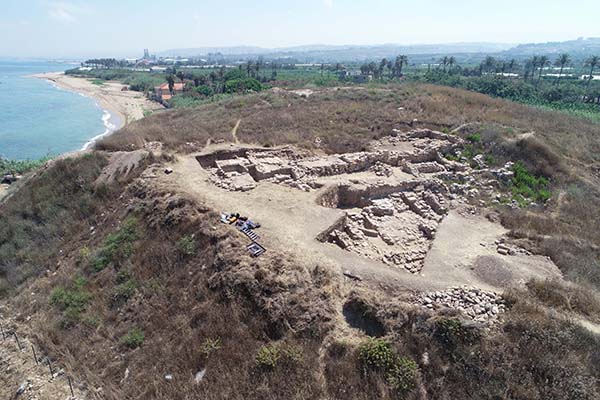
Wednesday 28 February, 6.30pm | This is a hybrid lecture
What’s new in archaeological research in Lebanon? What can we learn from recently excavated sites for the history and culture of Lebanon?
The lecture will address these questions on the basis of the excavations in Tell el-Burak, which were carried out by a Lebanese-German team from 2001-2022. The site is located 9 kilometers south of Sidon, directly on the coast. Excavations have uncovered a monumental building from the Middle Bronze Age I (ca. 1900-1700 BCE). In addition to the impressive construction and architecture of the building, wall paintings preserved on the interior facades of the largest room are of particular interest. After a settlement gap of around 1000 years, Tell el-Burak was settled again in the Iron Age II (from around 725 to around 330 BCE). During this period, which we can call the Phoenician period, there was an agricultural domain at this site that specialized in the cultivation of wine and olives.
The aim of the lecture is to present the most important results of the Lebanese-German excavations and to discuss their significance for the archaeology and history of Lebanon.
Prof. Jens Kamlah is Director of the Institute for Biblical-Archaeology at the University of Tübingen, the most renowned institute for the archaeology of the southern Levant at German universities. He is currently Visiting Researcher in the Discipline of Archaeology at the University of Sydney. Since his studies in Germany at the Universities of Mainz and Tübingen, he has regularly participated in excavations in the Near East, especially in Jordan and Lebanon. Together with Prof. Hélène Sader (American University of Beirut) and Prof. Aaron Schmitt (University of Heidelberg), he is directing the excavations at Tell el-Burak (Lebanon) and the ongoing analysis of the excavation results. In addition to the archaeology of Lebanon, his research focuses on the history and culture of the Phoenicians, the archaeology of the southern Levant (in combination with the analysis of written sources including texts from the Old Testament), temple cult in the Levant, and agriculture in the Near East.
